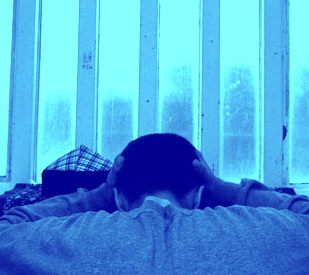Australia tops depression table
 Australia is one of the most depressed countries in the world.
Australia is one of the most depressed countries in the world.
Together with the USA and Estonia, Australia could have the second highest prevalence of depressive disorders globally, according to a new WHO report.
Of the over 180 countries surveyed, the Ukraine had the highest rate of depression (with 6.3 per cent of the population affected), followed by Australia, the USA and Estonia with prevalence rates of 5.9 per cent.
Out of the 21 countries in the WHO Western Pacific Region, Australia came second only to New Zealand for anxiety disorders, with seven per cent of the population affected.
Depression is the leading cause of ill health and disability worldwide. According to the latest estimates from the World Health Organization, more than 300 million people are now living with depression, an increase of more than 18 per cent between 2005 and 2015.
“These new figures are a wake-up call for all countries to re-think their approaches to mental health and to treat it with the urgency that it deserves,” said WHO Director-General, Dr Margaret Chan.
“The continuing stigma associated with mental illness was the reason why we decided to name our campaign Depression: let’s talk,” said Dr Shekhar Saxena, Director of the Department of Mental Health and Substance Abuse at WHO.
“For someone living with depression, talking to a person they trust is often the first step towards treatment and recovery.”
Increased investment is needed too, with nearly 50 per cent of people with depression not getting treatment even in high-income countries.
On average, just 3 per cent of government health budgets is invested in mental health, varying from less than 1% in low-income countries to 5 per cent in high-income countries.
The benefits of investing properly are enormous.
Every dollar invested in scaling up treatment for depression and anxiety leads to a return of $4 in better health and ability to work.
Treatment usually involves either a talking therapy or antidepressant medication or a combination of the two. Both approaches can be provided by non-specialist health-workers, following a short course of training, and using WHO’s mhGAP Intervention Guide.
WHO experts have found strong links between depression and other noncommunicable disorders and diseases.
Depression increases the risk of substance abuse, diabetes and heart disease, but the links go both ways, as people with these other conditions have a higher risk of depression.
Depression is also an important risk factor for suicide, which claims hundreds of thousands of lives each year.
Depression is characterised by persistent sadness and a loss of interest in activities that people normally enjoy, accompanied by an inability to carry out daily activities, for 14 days or longer.
In addition, people with depression normally have several of the following: a loss of energy; a change in appetite; sleeping more or less; anxiety; reduced concentration; indecisiveness; restlessness; feelings of worthlessness, guilt, or hopelessness; and thoughts of self-harm or suicide.







 Print
Print